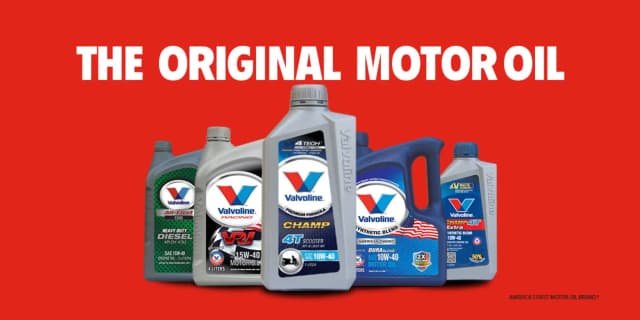Our Top Picks
- Best Inverter Generator in Overall: Generac 2,500-Watt Gas Powered Portable Inverter Generator
- Best Inverter Generator from Honda: Honda EU2200ITAN 2200-Watt Super Quiet Portable Inverter Generator
- Best Battery-Powered Inverter Generator: EGO Power+ PST3042 Nexus Portable Power Station
- Best Dual Fuel Inverter Generator: Champion Power Equipment 2500-Watt Portable Dual Fuel Inverter
- Best Inverter Generator under $800: WEN 3800-Watt Inverter Generator (56380i)
- Best Budget Inverter Generator: A-iPower 1500 Watt Portable Quiet Inverter Generator Gas Powered (SUA1500i)
- Best Sustainability Inverter Generator: Jackery Explorer 2000 PRO Portable Power Station
- Best for Home Backup Inverter Generator: Briggs & Stratton Q6500 Quiet Power Series Inverter Generator
- Best Heavy Dual Fuel Inverter Generator: DuroMax XP13000HX Dual Fuel Portable Generator
Inverter Generator Buying Guide
Inverter generators are a popular choice for home owners and campers thanks to their quiet operation, clean energy output and fuel efficiency. But with so many models on the market and often steep price tags, it’s important to know what you’re paying for. To make sure you’re investing in the best inverter generator for your needs, here are the key factors to consider before you place an order:
Power Output
When you think of investing in an inverter generator, the first and perhaps most critical factor is how much power the generator can provide.
Generators are primarily rated by their running watts (the amount of power they can consistently deliver) and peak watts (the temporary surge capacity needed to start certain appliances with high initial power demands, like refrigerators or air conditioners).
To accurately determine the suitable size for you, list all the devices and appliances you intend to power at the same time and find their operating watts. Total up all these wattage numbers, and then look for an inverter generator that meets or ideally exceeds that total.
Investing in too little power means you’ll be stuck unplugging just to run another. But buying significantly more than you need can be an unnecessary expense.
Runtime
If you’re expecting extended power outages or need energy for full-day use at job sites or remote locations, then the generator’s runtime is paramount.
Runtime depends on both the size of its fuel tank and its fuel efficiency (how well it converts fuel into power). Most inverter generators offer a runtime of 5-6 hours on a full tank, while some highly efficient models can last up to 15 hours or nearly a full day of continuous operation.
Choose a generator that matches how long you plan to use it, so you won’t have to stop and refuel frequently.
Fuel Type
While most inverter generators run on gasoline, you'll also find models that operate on other fuel sources.
-
Gasoline: Offers the highest power output and is easy to find, but the loudest and produces the most emissions.
-
Propane & Natural gas: Often found in dual or tri -fuel models, provides cleaner and quieter operation with slightly less power compared to gasoline. Propane also stores longer than gas.
-
Solar: Silent and eco-friendly, relies on sunlight (or wall/ car charging), ideal for light power needs or as backup support.
The right fuel type for generators depends on your priority regarding power, noise, eco-friendliness, and easy access to fuel.
Portability
Inverter generators come in a wide range of sizes and weights, directly impacting their portability. Some are designed to stay in place with large and heavy models, for grab-and-go use, featuring built-in handles, telescoping pull bars, and all-terrain wheels, while others are built for easy transport, featuring reduced size and weight, handles, pull bars, or wheels.
Reliability
A generator isn’t helpful if it breaks down precisely when you need it most. Durability and reliability are critical - especially during storms, outages, or remote work.
Our top-rated picks include models from Honda, Champion, Westinghouse, and Jackery, all of which have earned praise for long-lasting performance and dependable engineering.
Final Thoughts
Choosing the best inverter generator means finding the perfect match for your specific needs. Whether you're prepping for outages, powering an RV, or running tools off-grid, there’s a model in this guide that fits whatever you need, keeping your devices running smoothly.
The Generac 2500-Watt Gas Powered remains our top overall pick by offering use-friendly features at an accessible price. Besides, the Honda EU2200iTAN is wonderful alternatives for its legendary and quiet performance.
1. What’s the difference between an inverter generator and a regular generator?
Inverter generators use advanced electronics to produce clean, stable power ideal for sensitive devices, while traditional generators are typically louder, less efficient, and produce “dirty” power that can damage electronics.
2. Can inverter generators power a refrigerator or air conditioner?
Yes, especially if the generator produces over 3000 watts. Always check the starting and running wattage of your appliances before use.
3. How long do inverter generators last?
With proper maintenance, high-quality inverter generators can last for over 10 years or several thousand hours of use.
4. Are inverter generators safe to use indoors?
No. All gas-powered generators emit carbon monoxide and should be used indoors or in enclosed spaces. Operate generators outdoors in a well-ventilated area, at least 15-20 feet away from your home's windows, doors, and vents. It's also highly recommended to install carbon monoxide detectors inside your home.
5. Can I use inverter generators with solar panels?
Sometimes. Inverter generators are separate systems from solar but can work together in hybrid setups with appropriate equipment. Some advanced solar battery systems (often called "portable power stations" or "solar generators") can be charged by both solar panels and an AC input from a traditional generator, so that the generator can serve as a backup for the solar system during low sunlight or high demand.





















